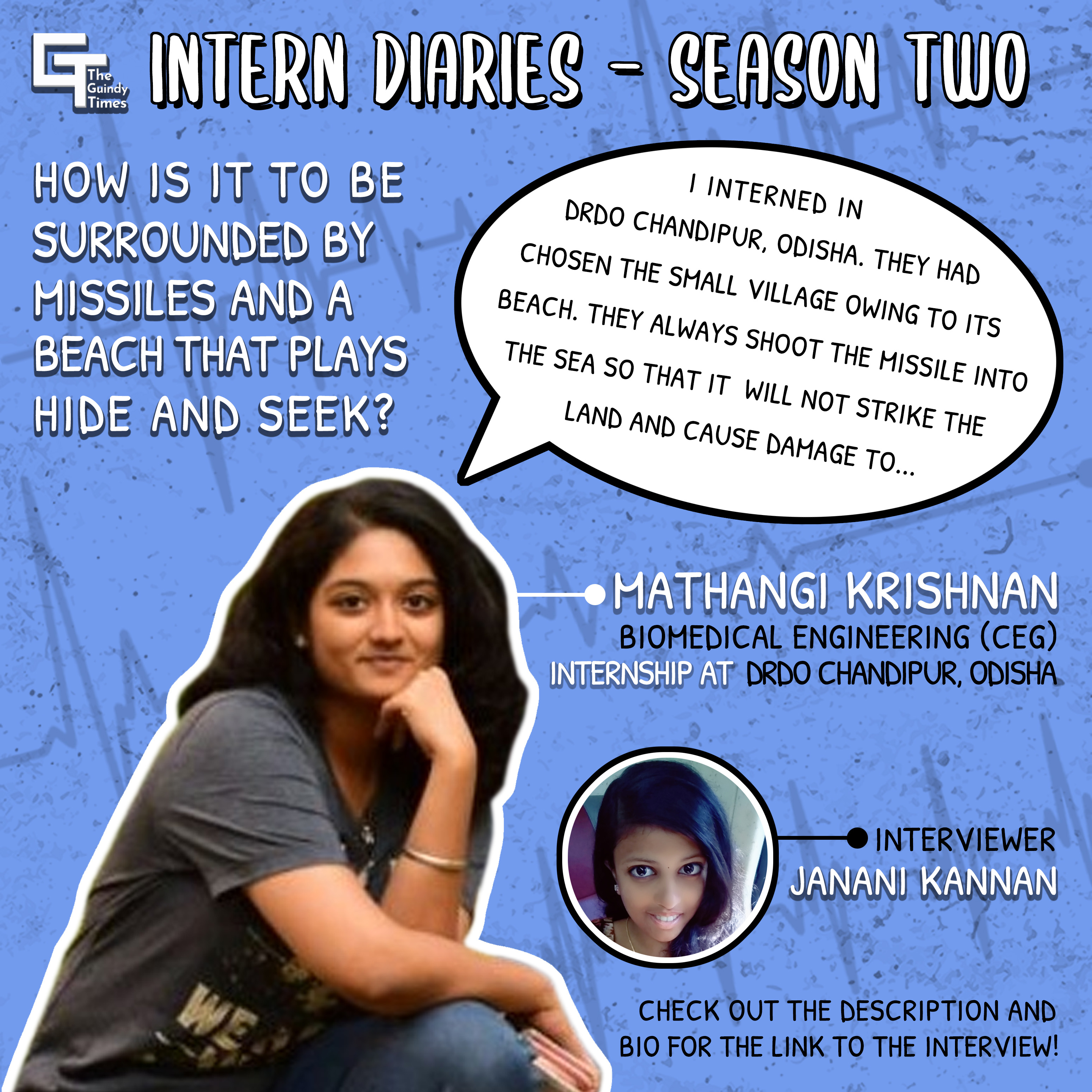"Winners don't do different things, they do things differently". People who create their own path rather than following others tend to hit success at a quicker pace. They are the people who are willing to go the extra mile to pursue their dreams.
Here is an interview with Mathangi Krishnan, a final year student, who did her internship in Integrated Test Range (ITR), Chandipur, Odisha, an offshoot organization of Defense Research and Development Organization (DRDO).
Interviewer: Janani Kannan (GT)
Interviewee: Mathangi Krishnan

GT: How did you get to know about this internship in DRDO and why did you opt for it?
Mathangi: I preferred to intern in a government organization since it is of great value to your resume. They are very organized, and I have heard that the projects done there are highly appreciated everywhere. I surfed through the net and found one in DRDO in the Integrated Test Range (ITR), which is an offshoot organization that tests missiles. I applied and luckily got it!
GT: It is widely known that the Defense sector is the major expenditure head. But what is the role of a biomedical engineer in such a field?
Mathangi: There are a lot of health care concerns to deal with in our army. Proper health care facilities should be at disposal for these selfless people, who are ready to give their lives for our nation, working in harsh and turbulent conditions. This is the endeavour of biomedical engineers. However, I worked in the missile testing sector.
GT: What is that one thing students are required to have while applying for an internship in DRDO?
Mathangi: Only interest is required. If one wants to enrich his/her knowledge from their internship and is not doing it merely for an experience, then DRDO is one of the best-suited places. Previously, the number of applicants selected was very less. But from this year, they are open to select a lot of them. I don't think GPAs and backlogs really matter.
GT: You had been interning in a place that is considered to be the centre of the entire Biodefense in India.Brief us about your experience.
Mathangi: First, we had a 5-day orientation program in which scientists from different departments briefed us about various departments such as preparing a target, tracking a missile and so on that we could get an outline of the work done there. I worked in Electro-Optical Tracking System Department. I singled out Image Processing because it plays a major role in Bio-medical diagnostic equipment like CT, MRI, etc. My project dealt with tracking the debris that has fallen into the ocean for which I had to write MATLAB programs.
GT: Where exactly did you intern in DRDO? Were basic amenities like accommodation manageable?
Mathangi: I interned in Chandipur, Odisha. They had chosen the small village owing to its beach. They always shoot the missile into the sea, so that it does not strike the land and cause damage. The accommodation was not provided by DRDO. We took small rooms in hotels available there.
GT: The theme for Biospectra'19 was Biomedical in Defense field. How important do you find this?
Mathangi: I think it was a very meaningful topic in comparison to other years. The defence is closely related to the biomedical field. We see about many army attacks in the news and this is an essential topic to know about.
GT: Has this internship given you a clear cut idea on what to pursue next? How do you intend to carry forward this experience?
Mathangi: I wouldn't say that, but I met really good people whom I will remember for the rest of my life. I got a chance to make good social connections. I have a good hang on Image Processing now. This will be very useful for my future studies. Additionally, it will be of great value in my resume.
The Guindy Times thanks Mathangi for spending her time to share with us the experience of her internship.





